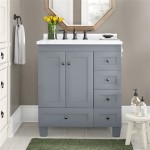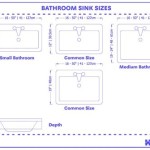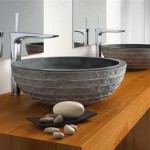What Is The Best Stone for Bathrooms?
Selecting the optimal stone for bathroom applications involves a careful consideration of factors such as durability, aesthetics, maintenance requirements, and budget. The bathroom environment presents unique challenges due to high humidity, frequent water exposure, and the use of cleaning products. Therefore, the ideal stone should be resistant to moisture damage, staining, and wear. Several natural and engineered stone options are available, each possessing distinct characteristics that make them suitable for different applications within the bathroom.
Common uses for stone in bathrooms include flooring, countertops, shower walls, and vanity backsplashes. The specific requirements for each application can influence the selection process. For instance, flooring benefits from a slip-resistant surface, while countertops demand resistance to scratches and stains. Shower walls require a non-porous material that prevents water absorption and mold growth. This article explores various stone options, evaluating their strengths and weaknesses in relation to these common bathroom applications.
Key Considerations for Stone Selection
Before delving into specific stone types, it is crucial to understand the key parameters that influence their suitability for bathroom use. These include porosity, durability, maintenance, aesthetics, and cost. Porosity refers to the stone's ability to absorb liquids. Highly porous stones are more susceptible to staining and water damage, requiring regular sealing. Durability encompasses resistance to scratches, chips, and abrasion, ensuring longevity in a high-traffic environment. Maintenance involves the effort required to clean and maintain the stone's appearance. Aesthetics encompass the color, pattern, and texture of the stone, contributing to the overall design of the bathroom. Finally, cost is a significant factor, encompassing the purchase price, installation expenses, and long-term maintenance costs.
Understanding these parameters allows for a more informed decision-making process, ensuring that the selected stone meets both functional and aesthetic requirements. A stone that excels in one area may fall short in another, necessitating a careful balancing act to achieve the desired outcome. The following sections will examine different stone types, highlighting their performance in each of these key areas.
Popular Stone Options for Bathrooms
Several stone types have gained popularity for bathroom applications, each offering a unique combination of characteristics. These include granite, marble, quartz, slate, and travertine. Granite is known for its exceptional durability and resistance to staining, making it a suitable option for countertops and flooring. Marble offers a classic and elegant aesthetic, but it is more porous and requires more careful maintenance. Quartz, an engineered stone, provides consistent color and pattern, along with high durability and low maintenance. Slate offers a natural and rustic appearance, with good slip resistance for flooring. Travertine, characterized by its distinctive pitted surface, requires regular sealing to prevent water damage.
Each of these stone types will be discussed in more detail below, examining their specific properties and suitability for different bathroom applications. The analysis will consider factors such as porosity, durability, maintenance requirements, aesthetic qualities, and cost considerations.
Granite
Granite is an igneous rock renowned for its hardness and resistance to scratches, heat, and stains. Its low porosity makes it an excellent choice for bathroom countertops, where spills are common. The variety of colors and patterns available in granite also allows for a wide range of design options. Sealing granite regularly is still recommended, though less frequently than with more porous stones. The cost of granite can vary depending on the rarity and complexity of the pattern, but it is generally a mid-range to high-end option.
For bathroom flooring, granite provides a durable and long-lasting surface. Its density makes it resistant to water damage, and its textured surface can provide some slip resistance. However, polished granite can be slippery when wet, so a honed or textured finish is often preferred for flooring applications. The installation of granite requires professional expertise due to its weight and rigidity.
Marble
Marble is a metamorphic rock prized for its elegant veining and smooth texture. It is a popular choice for bathroom vanities, walls, and flooring, adding a touch of luxury to any space. However, marble is more porous than granite and requires more diligent maintenance. It is susceptible to staining from acidic substances such as vinegar and lemon juice, and it can be scratched by abrasive cleaners. Regular sealing is essential to protect marble from moisture damage and staining.
While marble offers a beautiful aesthetic, its higher maintenance requirements must be carefully considered. For shower walls, marble can be a good option if properly sealed and cleaned regularly to prevent soap scum buildup and water damage. For flooring, honed marble is preferable to polished marble to provide better slip resistance. The cost of marble can vary widely depending on the quality and rarity of the stone.
Quartz
Quartz is an engineered stone composed of crushed quartz crystals bound together with resin. This manufacturing process allows for consistent color and pattern, as well as enhanced durability and low maintenance. Quartz is non-porous, making it highly resistant to staining and water damage. It does not require sealing, making it a convenient option for busy homeowners.
Quartz is an excellent choice for bathroom countertops and vanities, providing a hygienic and easy-to-clean surface. It is also resistant to scratches and heat, making it a practical option for everyday use. While quartz lacks the natural veining of marble, it offers a wide range of colors and patterns to suit different design styles. For flooring, quartz tiles provide a durable and low-maintenance option. The cost of quartz is typically comparable to granite, making it a mid-range to high-end option.
Slate
Slate is a metamorphic rock known for its natural cleft texture and earthy tones. Its inherent slip resistance makes it an ideal choice for bathroom flooring, particularly in shower areas. Slate is also relatively non-porous, making it resistant to water damage. However, some types of slate can be prone to staining, so sealing is still recommended.
Slate offers a rustic and natural aesthetic, adding warmth and character to the bathroom. It is also a durable material that can withstand heavy foot traffic. For shower walls, slate provides a unique and textured surface. However, the uneven surface of slate can make it more difficult to clean than smoother stone options. The cost of slate is generally more affordable than granite or marble, making it a budget-friendly option.
Travertine
Travertine is a form of limestone characterized by its distinctive pitted surface. Its natural beauty and warm tones make it a popular choice for bathroom flooring and walls. However, travertine is more porous than other stone options and requires regular sealing to prevent water damage and staining. The pits and holes in travertine can also trap dirt and debris, making it more difficult to clean.
For bathroom flooring, filled and honed travertine is preferred to provide a smoother and more slip-resistant surface. The filling process involves filling the pits and holes with epoxy or cement, creating a more even surface. For shower walls, travertine requires careful sealing and regular cleaning to prevent mold growth and water damage. The cost of travertine can vary depending on the quality and finish of the stone.
Comparing Stone Options for Specific Bathroom Applications
The optimal stone choice depends on the specific application within the bathroom. For countertops, granite and quartz offer the best combination of durability, stain resistance, and low maintenance. Marble provides a luxurious aesthetic but requires more diligent maintenance. Slate and travertine are less suitable for countertops due to their porosity and potential for staining.
For flooring, slate and honed travertine offer excellent slip resistance and a natural aesthetic. Granite and quartz provide durable and low-maintenance options, but polished finishes can be slippery when wet. Marble can be used for flooring, but honed finishes are preferred to provide better traction.
For shower walls, non-porous options like quartz are ideal. Well-sealed granite or marble can also be used, but they require regular cleaning to prevent soap scum buildup and water damage. Slate and travertine can be used for shower walls, but they require careful sealing and maintenance to prevent moisture damage and mold growth.

How You Would Use Natural Stone In Your Bathroom

Stone Bathroom Design With Natural For A Perfect

What Is The Best Stone For Shower Walls Cosmos Surfaces

How To Choose Natural Stone For The Bathroom Cupa
The Best Natural Stone For Shower Bathroom Design Ideas Ctasc Com

Best Natural Stones Of Bathrooms Stoneline Group

What Natural Stone Is Best For Bathrooms

64 Sensational Bathrooms With Natural Stone Walls

Can You Use Natural Stone In A Bathroom Ina Services Inc

Best Natural Stones Of Bathrooms Stoneline Group
Related Posts







